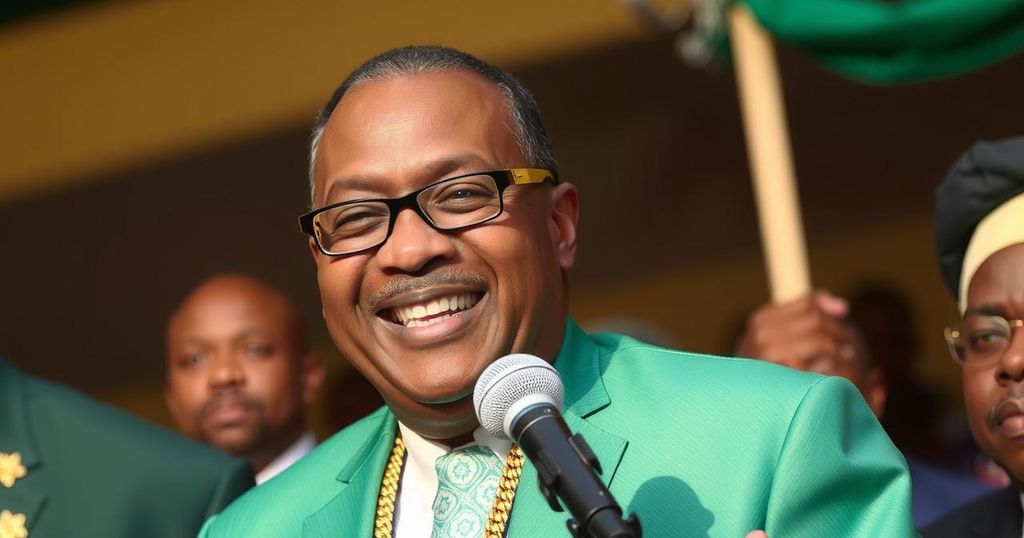Ghana’s Mahama Secures Historic Comeback Victory in Presidential Election
Former Ghanaian president John Drahami Mahama has won the presidential election, marking a historic comeback after the ruling New Patriotic Party conceded defeat. Economic turmoil and high inflation were key factors driving voters to seek change. Mahama, of the National Democratic Congress, overcame previous election losses in 2016 and 2020, signifying a political shift in Ghana.
John Drahami Mahama, the former president of Ghana, has achieved a historic electoral comeback, winning the latest presidential election after the ruling party acknowledged its defeat. The National Democratic Congress (NDC) candidate’s victory follows widespread public discontent with the ruling New Patriotic Party (NPP) due to their handling of a severe economic crisis characterized by high inflation and a debt default. The NPP, represented by Vice President Mahamudu Bawumia, accepted the results early on, indicating a clear desire for change among the electorate.
Mahama’s comeback marks his third attempt at reclaiming the presidency, having previously lost elections in 2016 and 2020. In remarks confirming the NDC’s victory, Bawumia stated, “The people of Ghana have spoken, the people have voted for change at this time and we respect it with all humility.” Although official election results have yet to be released, preliminary reports suggest Mahama received approximately 56.3 percent of the vote compared to Bawumia’s 41.3 percent.
Celebrations erupted as Mahama’s supporters took to the streets, expressing their joy and optimism for the future. Mahama has yet to publicly respond to his victory, but he acknowledged Bawumia’s congratulatory message via social media. The United States embassy in Accra commended the elections, describing them as successful and reflective of the electorate’s will, thus expressing eagerness to continue a strong partnership under Mahama’s leadership.
The economic situation in Ghana, having undergone a tumultuous period with debt restructuring and currency devaluation, significantly influenced voter sentiment. While inflation rates decreased from over 50 percent, many Ghanaians still felt the weight of the economic struggles, leading to a desire for new governance. Historically, Ghana’s political landscape has seen the two principal parties, the NPP and NDC, alternate power since the reintroduction of multi-party politics in 1992. Mahama’s victory represents a significant shift in this political cycle, particularly as Bawumia aimed for a third consecutive term for the NPP, yet struggled under the shadow of economic dissatisfaction.
Ghana, known for its democratic stability, has a political history characterized by alternating power between the National Democratic Congress (NDC) and the New Patriotic Party (NPP) since the inception of multi-party politics in 1992. The most recent elections were chiefly influenced by the Ghanaian economy, which has faced significant challenges, including inflation surging to over 50 percent and a notable debt default. The country was also the recipient of a $3 billion bailout from the International Monetary Fund (IMF) following these economic hardships. John Mahama, who served as president from 2012 to 2017, returned to the political forefront after failing to secure victory in previous elections, making this win a noteworthy historical event.
In summary, John Drahami Mahama’s decisive victory in the presidential election represents a significant shift in Ghana’s political landscape following widespread discontent with the NPP’s governance amid economic turmoil. The acceptance of defeat by Vice President Bawumia and the call for change reflects the electorate’s urgent desire for new leadership. As Mahama prepares for his prospective return to office, the nation’s economic challenges remain a pressing concern that will undoubtedly shape his administration’s priorities.
Original Source: www.bryantimes.com




Post Comment